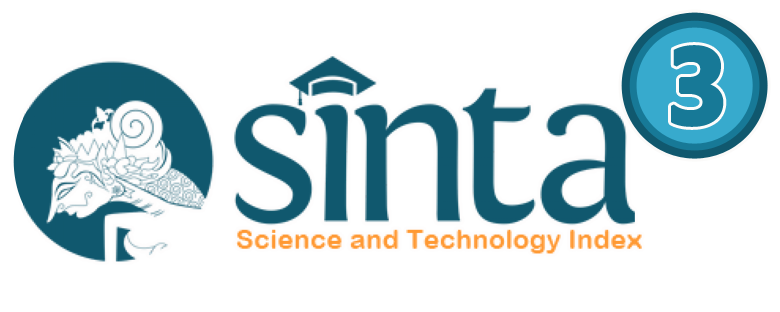The Meaning and Determinants of Workplace Happiness among Outsourced Employees: A Phenomenological Study at Indonesian State Universities
DOI:
https://doi.org/10.18326/ijip.v7i2.5120Keywords:
Happiness at Work, Outsourcing Employees, Phenomenological Analysis , Indonesian State , UniversitiesAbstract
Happiness at work has proven to be important for both companies and employees. However, outsourcing employees are faced with conditions that do not support happiness at work, such as: (1) job insecurity, (2) status conflicts, and (3) no career path. This research aims to explore the meaning of happiness at work for outsourcing employees and determine the factors that can influence it. This research used a qualitative phenomenological method with 5 outsourcing employees who were placed to work at one of the state universities in Indonesia as resource persons. Data were collected using semi-structured interviews and data analysis using interpretative phenomenological analysis (IPA). The research results show that the meaning of happiness at work for outsourced employees is when they have a job amidst limited job opportunities. They are happy because they can earn a living to meet their family's needs without losing their main role in the family. They feel happy at work when there are good relationships with coworkers and gain recognition from the work environment. The research results show 5 factors that influence happiness at work, namely: (1) Relationships with coworkers, (2) Work Environment, (3) Difficulties faced, (4) Evaluation of the company, and (5) Gratitude. As the outsourcing system continues to develop, more and more workers will have outsourcing employee status. These findings fill the gap in literature/information related to workplace happiness among outsourced employees so that they can be used as material for consideration by policy makers in companies and in government.
References
C. Proctor, “Subjective Well-Being (SWB),” in Encyclopedia of Quality of Life and Well-Being Research, Dordrecht: Springer Netherlands, 2014, pp. 6437–6441. doi: 10.1007/978-94-007-0753-5_2905.
K.-J. Huang, “Does Valuing Happiness Lead to Well-Being?,” Psychol. Sci., vol. 35, no. 10, pp. 1155–1163, Oct. 2024, doi: 10.1177/09567976241263784.
S. Oishi and E. Diener, “Can and Should Happiness Be a Policy Goal?,” Policy Insights from Behav. Brain Sci., vol. 1, no. 1, pp. 195–203, Oct. 2014, doi: 10.1177/2372732214548427.
N. Park, C. Peterson, D. Szvarca, R. J. Vander Molen, E. S. Kim, and K. Collon, “Positive Psychology and Physical Health,” Am. J. Lifestyle Med., vol. 10, no. 3, pp. 200–206, May 2016, doi: 10.1177/1559827614550277.
F. Wang, J. Guo, and G. Yang, “Study on positive psychology from 1999 to 2021: A bibliometric analysis,” Front. Psychol., vol. 14, Mar. 2023, doi: 10.3389/fpsyg.2023.1101157.
E. Diener, R. E. Lucas, and S. Oishi, “Advances and Open Questions in the Science of Subjective Well-Being,” Collabra Psychol., vol. 4, no. 1, Jan. 2018, doi: 10.1525/collabra.115.
W. Tov and E. Diener, “Subjective Wellbeing,” in The Encyclopedia of Cross‐Cultural Psychology, Wiley, 2013, pp. 1239–1245. doi: 10.1002/9781118339893.wbeccp518.
D. S. Pereira, U. F. Araujo, and A. Delle Fave, “Psychological and Contextual Definitions of Happiness Among Teachers: A Comparative Study Across Professional Roles,” Trends Psychol., Jun. 2025, doi: 10.1007/s43076-025-00471-x.
P. F. J. Li, Y. J. Wong, and R. C.-L. Chao, “Happiness and meaning in life: Unique, differential, and indirect associations with mental health,” Couns. Psychol. Q., vol. 32, no. 3–4, pp. 396–414, Oct. 2019, doi: 10.1080/09515070.2019.1604493.
C. Peterson and M. E. P. Seligman, “Character Strengths and Virtues: A Handbook and Classification.”
L. Cohen and J. D. Huppert, “Positive Emotions and Social Anxiety: The Unique Role of Pride,” Cognit. Ther. Res., vol. 42, no. 4, pp. 524–538, Aug. 2018, doi: 10.1007/s10608-018-9900-2.
R. Biswas-Diener and C. van Nieuwerburgh, “The Professionalization of Positive Psychology Coaching,” in Positive Psychology Coaching in the Workplace, Cham: Springer International Publishing, 2021, pp. 23–39. doi: 10.1007/978-3-030-79952-6_2.
M. L. Kern et al., “Systems informed positive psychology,” J. Posit. Psychol., vol. 15, no. 6, pp. 705–715, Nov. 2020, doi: 10.1080/17439760.2019.1639799.
P. Benevene et al., “Effect of Teachers’ Happiness on Teachers’ Health. The Mediating Role of Happiness at Work,” Front. Psychol., vol. 10, Oct. 2019, doi: 10.3389/fpsyg.2019.02449.
Ö. Özer, O. Özkan, S. Özmen, and Ü. Çirakli, “Investigation of the Perception of Occupational Safety, Work Stress and Happiness in Healthcare Workers,” J. Health Manag., vol. 25, no. 4, pp. 813–819, Dec. 2023, doi: 10.1177/09720634221078413.
M. Al-Edenat and N. Al Hawamdeh, “Revisiting happiness at work within the hospitality sector: revealing the power of ethical leadership and group diversity,” J. Organ. Eff. People Perform., Oct. 2024, doi: 10.1108/JOEPP-04-2024-0153.
E. Diener, M. E. P. Seligman, H. Choi, and S. Oishi, “Happiest People Revisited,” Perspect. Psychol. Sci., vol. 13, no. 2, pp. 176–184, Mar. 2018, doi: 10.1177/1745691617697077.
C. D. Fisher, “Happiness at Work,” Int. J. Manag. Rev., vol. 12, no. 4, pp. 384–412, Dec. 2010, doi: 10.1111/j.1468-2370.2009.00270.x.
J. Pryce‐Jones, Happiness at Work. Wiley, 2010. doi: 10.1002/9780470666845.
S. Castellanos-Redondo, D. Nevado-Peña, and B. Yañez-Araque, “Ethics and Happiness at Work in the Spanish Financial Sector,” Sustainability, vol. 12, no. 21, p. 9268, Nov. 2020, doi: 10.3390/su12219268.
O. N. Medvedev and C. E. Landhuis, “Exploring constructs of well-being, happiness and quality of life,” PeerJ, vol. 6, p. e4903, Jun. 2018, doi: 10.7717/peerj.4903.
K. adnan Bataineh, “Impact of Work-Life Balance, Happiness at Work, on Employee Performance,” Int. Bus. Res., vol. 12, no. 2, p. 99, Jan. 2019, doi: 10.5539/ibr.v12n2p99.
C. S. Bellet, J.-E. De Neve, and G. Ward, “Does Employee Happiness Have an Impact on Productivity?,” Manage. Sci., vol. 70, no. 3, pp. 1656–1679, Mar. 2024, doi: 10.1287/mnsc.2023.4766.
W. Al-Ali, A. Ameen, O. Isaac, G. S. A. Khalifa, and A. H. Shibami, “The mediating effect of job happiness on the relationship between job satisfaction and employee performance and turnover intentions: A case study on the oil and gas industry in the United Arab Emirates,” J. Bus. Retail Manag. Res., vol. 13, no. 04, Jul. 2019, doi: 10.24052/JBRMR/V13IS04/ART-09.
H. Charles-Leija, C. G. Castro, M. Toledo, and R. Ballesteros-Valdés, “Meaningful Work, Happiness at Work, and Turnover Intentions,” Int. J. Environ. Res. Public Health, vol. 20, no. 4, p. 3565, Feb. 2023, doi: 10.3390/ijerph20043565.
J. Ruetrakul, “Causal Relationship Model of Factors Affecting Workplace Happiness among Head Nurses’ of Secondary Hospital at Northern Region, Thailand,” J. Clin. Diagnostic Res., vol. 15, no. 6, p. 29, 2021, doi: 10.7860/JCDR/2021/47702.15050.
A. Salas-Vallina, C. Simone, and R. Fernández-Guerrero, “The human side of leadership: Inspirational leadership effects on follower characteristics and happiness at work (HAW),” J. Bus. Res., vol. 107, pp. 162–171, Feb. 2020, doi: 10.1016/j.jbusres.2018.10.044.
A. Kun and P. Gadanecz, “Workplace happiness, well-being and their relationship with psychological capital: A study of Hungarian Teachers,” Curr. Psychol., vol. 41, no. 1, pp. 185–199, Jan. 2022, doi: 10.1007/s12144-019-00550-0.
T. Lomas, L. Waters, P. Williams, L. G. Oades, and M. L. Kern, “Third wave positive psychology: broadening towards complexity,” J. Posit. Psychol., vol. 16, no. 5, pp. 660–674, Sep. 2021, doi: 10.1080/17439760.2020.1805501.
B. Uysal, M. Yorulmaz, and M. Demirkıran, “Evaluation of outstanding theories in outsourcing with practices in the public health sector: The case of Türkiye,” Heliyon, vol. 10, no. 7, p. e28773, Apr. 2024, doi: 10.1016/j.heliyon.2024.e28773.
R. Zitkiene and U. Dude, “The impact of outsourcing implementation on service companies,” Entrep. Sustain. Issues, vol. 6, no. 1, pp. 342–355, Sep. 2018, doi: 10.9770/jesi.2018.6.1(21).
U. Kustiawan, P. Marpaung, U. D. Lestari, and E. Andiyana, “The Effect of Affective Organizational Commitment, Job Satisfaction, and Employee Engagement on Job Happiness and Job Performance on Manufacturing Company in Indonesia,” Wseas Trans. Bus. Econ., vol. 19, pp. 573–591, Feb. 2022, doi: 10.37394/23207.2022.19.52.
S. N. Milinum, “Problematika Fleksibilitas Outsourcing (Alih Daya) Pasca-Undang-Undang Nomor 11 Tahun 2020 tentang Cipta Kerja Klaster Ketenagakerjaan,” J. Huk. Lex Gen., vol. 3, no. 5, pp. 412–432, May 2022, doi: 10.56370/jhlg.v3i5.119.
I. Herawati, S. M. Hoesni, J. Manap, and N. A. Mohd Khatib, “A Qualitative Study: Exploring Marital Readiness among Generation Z,” Int. J. Acad. Res. Bus. Soc. Sci., vol. 13, no. 12, Dec. 2023, doi: 10.6007/IJARBSS/v13-i12/20107.
E. J. Noon, “Interpretive Phenomenological Analysis: An Appropriate Methodology for Educational Research?,” J. Perspect. Appl. Acad. Pract., vol. 6, no. 1, pp. 75–83, Apr. 2018, doi: 10.14297/jpaap.v6i1.304.
N. Pookkaman and A. Sripradit, “A Study of Factors Influencing Happiness at Work for Supervisors: Hitachi Industrial Technology (Thailand) Co., Ltd,” J. Arts Manag., vol. 7, no. 2, pp. 714-726., 2023.
A. Salas-Vallina, J. Alegre, and R. Fernández Guerrero, “Happiness at work in knowledge-intensive contexts: Opening the research agenda,” Eur. Res. Manag. Bus. Econ., vol. 24, no. 3, pp. 149–159, Sep. 2018, doi: 10.1016/j.iedeen.2018.05.003.
D. Wulandri and M. Batubara, “Interpretative Phenomenological Analysis: Kebahagiaan di Tempat Kerja pada Karyawan di Divisi Sumber Daya Manusia,” Indones. Psychol. Res., vol. 4, no. 1, pp. 28–41, Dec. 2021, doi: 10.29080/ipr.v4i1.651.
R. Dahiya and J. Raghuvanshi, “Happiness at work: a multi-criteria decision-making approach,” J. Indian Bus. Res., vol. 13, no. 4, pp. 459–482, Nov. 2021, doi: 10.1108/JIBR-04-2020-0091.
Downloads
Published
Issue
Section
License
Copyright (c) 2025 IJIP : Indonesian Journal of Islamic Psychology

This work is licensed under a Creative Commons Attribution-ShareAlike 4.0 International License.

 Indonesian Journal of Islamic Psycology is licensed under a
Indonesian Journal of Islamic Psycology is licensed under a 


